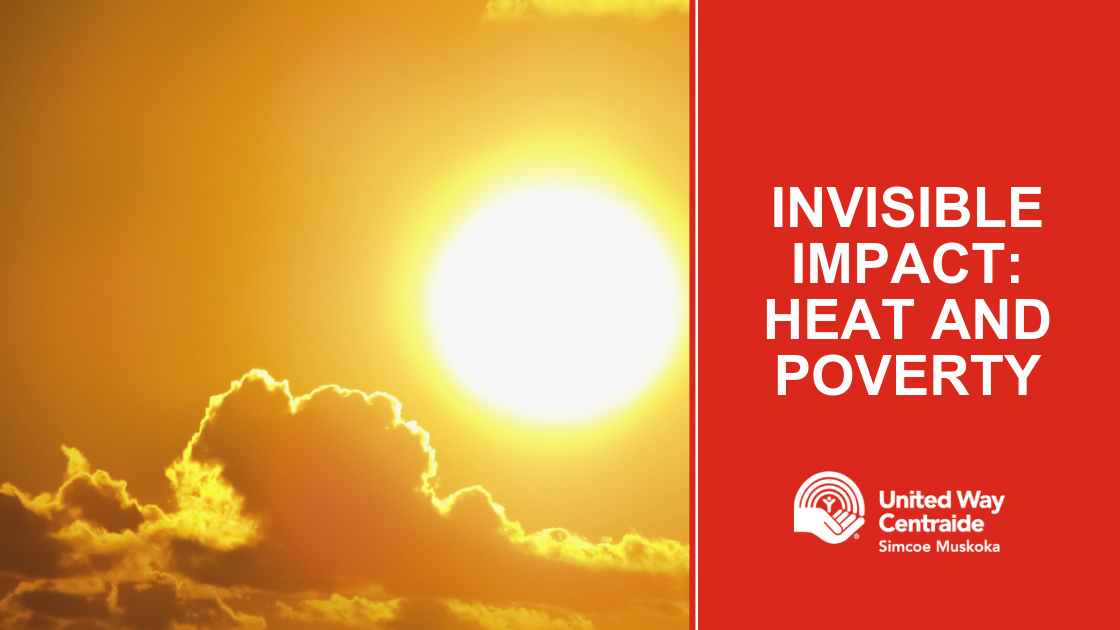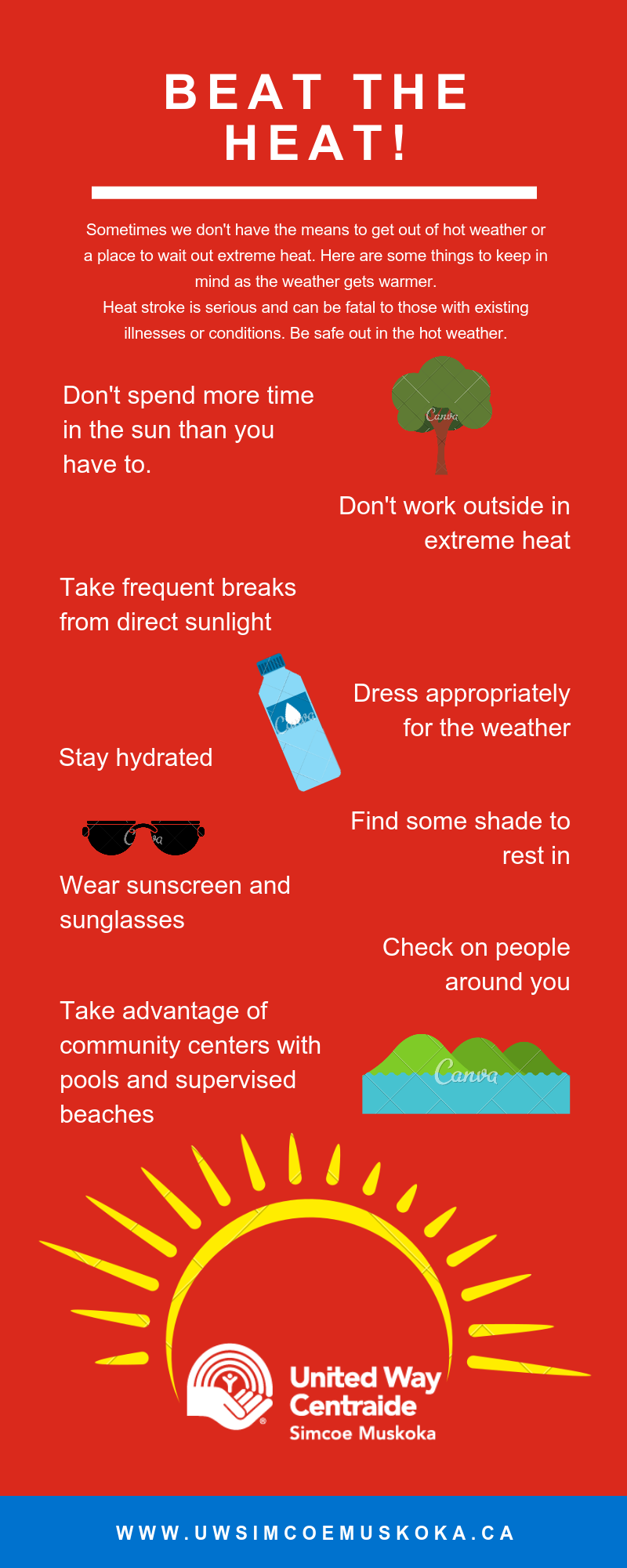
29 May Invisible Impact: Heat and Poverty
While most of us are celebrating the beautiful weather replacing the cold, wet days of winter, we can’t forget about the dangers of hot weather that could come about at any moment.
It’s impossible to deny the changing climate all around us. Just last year, many parts of Canada experienced some of the hottest weather and one of the worst heat waves in recorded history. Last Canada Day, Ottawa set a humidex record with temperatures feeling like 47 degrees Celsius. In Quebec, more than 90 deaths were attributed to the heat wave in July over little more than a week.
Here in Simcoe Muskoka, temperatures are supposed to feel closer to those of Ohio by the 2020s, which has an average daily high during the summer of 29 degrees Celsius. By the 2050s, it will feel more like 31-degree summers of Kentucky. By the 2080s, it will feel more like Mississippi’s 33-degree averages.
Right now, we experience average summer highs of 26 degrees.
It might not seem like a huge change, but it’s a disturbing trend. 2019 is already predicted to be the hottest year in Canadian history, filled with extreme weather and natural disasters.
Still, many of us are fortunate enough to have air conditioning at home to wait out the hot weather when it gets too bad. Unfortunately, those living in poverty do not have the same luxury. Instead, hot weather can lead to health complications and, as we’ve seen, death.

It’s not just a lack of air conditioning that makes the hot weather dangerous. One study from the U.S. shows that increased temperatures have a disproportionately negative impact on minorities and those experiencing poverty. What’s worse is that poverty often fuels medical conditions that result in heart and breathing problems, which make people even more susceptible to heat-related illnesses and hospitalization.
Urban areas throughout Simcoe Muskoka will feel the heat even more. Towns and cities, with large buildings and more concrete than rural locations, absorb heat more easily. As a result, most of these “heat islands” experience twice the amount of warming as anywhere else.
Unfortunately, these urban areas have higher rates of homelessness and poverty as well. This means it’s hotter and the heat can be more harmful. Unfortunately, its these same people who are more affected by heat that feel excluded from local efforts to mitigate the impact of hot weather.
Internationally, there have been policy changes that have helped to lower average temperatures, reduce the threat of heat-related illnesses and save lives. There haven’t been any similar changes in Simcoe Muskoka, though.
For those of us in Simcoe Muskoka who don’t have a cool place to wait out the heat, here are some tips to help reduce the risk of heat-related illnesses and heat stroke.
- Don’t spend time outside if you don’t have to.
- Don’t work outside in extreme heat. Remember it’s your right to refuse unsafe work.
- Take breaks from direct sunlight, even if you’re lounging in the heat.
- Dress appropriately for the weather.
- Stay hydrated. Your body sweats to keep you cool, but high humidity stops that sweat from evaporating.
- If you can’t get inside, stay in the shade.
- Wear sunscreen and sunglasses. The sun can cause skin cancer and permanent eyesight damage.
- Check on the people around you. During times of extreme heat, make sure your friends, family and neighbours are safe and doing what they can to beat the heat.
- Take advantage of community centers with pools and supervised beaches. Muskoka alone has 1,600 lakes. Take a dip to keep cool, but be extra careful at unsupervised beaches.
If you find yourself out and about during extreme weather and start feeling drowsy, nauseated or any other symptoms of heat stroke, look for public and municipal buildings to sit in for half an hour. Most municipalities will have cooling stations set up when more extreme heat is coming. There is no official list this year yet, but here are the cooling stations across Simcoe County from last year.
Lastly, if you see someone suffering from heat stroke, call 911. For many residents of Simcoe Muskoka, heat stroke can be fatal.
The effects of poverty are far-reaching and often invisible. That’s why United Way Simcoe Muskoka is working harder than ever to make sure nobody has to face poverty alone. To keep up to date on our work, subscribe to our newsletter, and follow us on Facebook, Twitter and Instagram.



Sorry, the comment form is closed at this time.